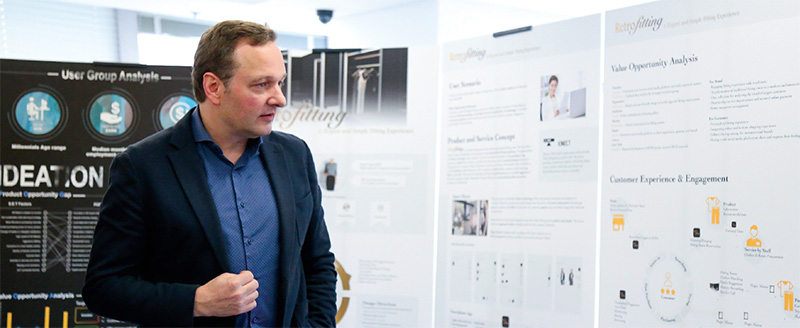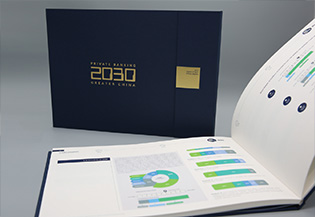
Dr Jörn Bühring
University-industry collaboration has shed light on a cross-disciplinary method for determining the preferable future of the private banking sector until 2030.
It is often difficult to picture what the future will be like in 10 to 15 years' time. Yet in an age of rapid change, organisations are constantly forced to transform, rethink their strategies and anticipate future trends to adapt to the changing business environment.
With the belief that future outcomes can be influenced by choices made in the present, Dr Jörn Bühring, Research Assistant Professor at the School of Design, conducted a study funded by UBS AG Wealth Management, a global leader in financial services, asset management and investment banking, to develop a deeper understanding of the forward-looking perspectives that may shape the future of private banking until 2030.
The study was developed using a modified Delphi technique with the participation of 13 experts: 10 senior decision-makers from the private banking industry and three from relevant academic disciplines. The participants were first presented with probing questions and invited to share their expert opinions about current issues (growth and collapse) and the early signs of change that may determine preferable futures in 2020 and 2030 from four perspectives – the organisation, market, industry and the Chinese consumer.
In the second round, the experts were presented with 10 scenario statements that expressed ideas analysed and synthesised from their combined responses in the first round. A likelihood of occurrence rating and the mean value of the group's consensus on the scenario statement were designed as consensus-reaching indicators.
The results revealed general agreement among the experts that the current model of the private banking organisation would be replaced by a highly streamlined and agile one offering physical/digital/virtual client advisory services in key market locations and responding to market-oriented consumer needs. Apart from competing for talents on regional and international levels, data analytics would also be key to a banking organisation's ability to deliver profitable product innovations. Advances in artificial intelligence would play a significant role in innovating tailored and need-based client experiences, signifying a technology shift to create new value through smarter and intelligent channels. In addition, the experts foresaw that Chinese clients in 2030 would be better informed, highly mobile and fully integrated into global society, seeking diversified investment options to address outcome-specific goals.
These findings will not only enable the private banking sector to identify opportunities ahead of time, but they will also act as drivers of change, propelling industry players to revisit their innovation practices through a design-inspired foresight approach, thus better preparing for future development.
The School of Design is advancing its research and industry collaboration capabilities in design thinking, innovation and foresight, and is actively seeking engagement with other faculties to spearhead an interdisciplinary team approach to addressing important challenges and opportunities. ♦

